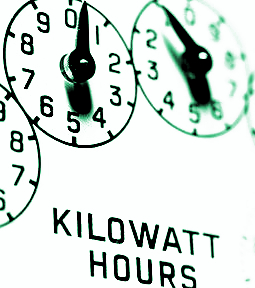PM launches power price plan
 The Federal Government has announced new measures to help consumers and businesses keep down energy costs.
The Federal Government has announced new measures to help consumers and businesses keep down energy costs.
Prime Minister Scott Morrison says the Government will wield “a big stick” to stop energy price gouging.
The ACCC says electricity prices are too high, and has made a series of recommendations including introducing of a base or “default” price for power in each jurisdiction.
This is designed to make sure customers were not being exploited for staying with a standing offer from their supplier.
The Government has taken on the idea as part of a four-part package to fix the energy market.
Mr Morrison says the measure could save households up to $800.
The first step is to impose a default power price for all customers
“The first one is to empower customers with a price safety net and to end the loyalty tax put on customers all around the country simply because they've stayed with their electricity company, they pay more. That has to end,” the Prime Minister said.
The Government also wants to increase regulatory powers to punish anti-competitive practices.
“Secondly, to give ourselves, as a government and through the Parliament, a big stick to keep these big energy companies in line, to stop the gouging, to ensure they pass on the savings that are being achieved in wholesale prices,” Mr Morrison said.
Steps will also be taken to ensure power companies invest to meet energy demands.
“Thirdly, forcing energy companies to buy ahead and contract reliable energy supply into the market — fair dinkum power, as you've heard me call it — from the generators, so we can keep the lights on and we don't see a repeat of the fiasco we saw in South Australia,” he said.
They will also seek new ways to back investment in new power generators.
“There needs to be more reliable power generation going into the system to ensure that that can get prices down,” Mr Morrison said.
Once the plan is in place by July next year, the Government is promising big savings.
“On the residential customers — this is just on the default price — the savings for residential consumers range from $273 in the ACT through to $832 in savings in South Australia,” he said.
“For small business customers, it can be as high as $3,500 a year in South Australia, and just under $1,000 in the ACT.”
ACCC chairman Rod Sims said setting a default price is “really important”.
“Introducing a default offer is going save about a quarter of small businesses at least $1,000 a year on their electricity bill,” he said.
“Also a default offer will save households $200 to $300, who are still on standing offers.
“Most importantly though the default offer will have a benchmark against which discounts can happen, so now consumers will know a 20 per cent discount is better than a 10 per cent discount.
“They're completely confused now; having that clarity of a common default price from which discounts occur will allow consumers to better engage with the market and get the best offers available.”
The Australian Energy Council, a lobby representing electricity and natural gas businesses, questioned the measures.
“The ACCC said that the annual savings attributable to its default price recommendation would be between $105 and $165,” chief executive Sarah McNamara said.
“This is much lower than the $832 savings per year suggested today — savings of that magnitude are only available for a customer who switched from the highest priced offer in the market to the cheapest deal.
“For the majority of customers who have already switched to a market offer, the Government's proposed default price won't lower their bills.”







 Print
Print